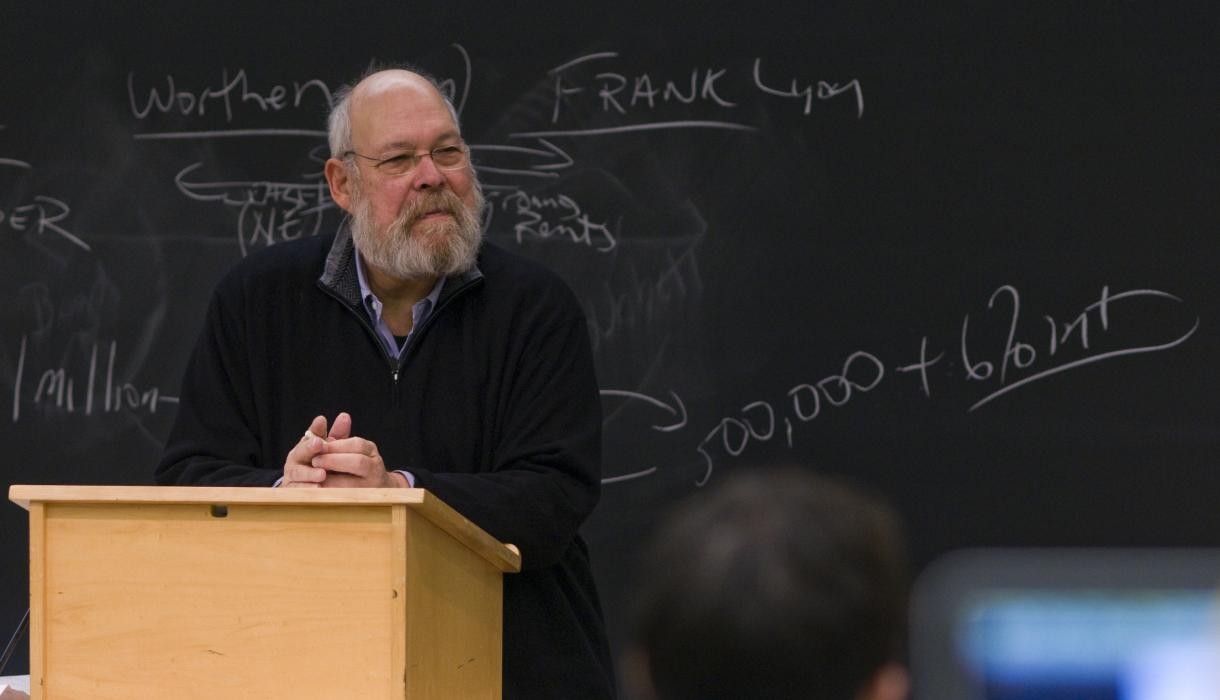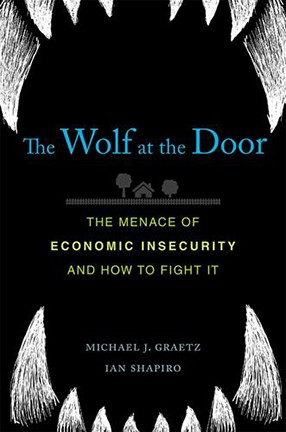Law Professor Michael Graetz Discusses How to Address Economic Insecurity
In a new book, The Wolf at the Door, realistic policies and strategies are proposed to make lives and communities more secure.

Americans are facing an age of unprecedented crisis amid the COVID-19 pandemic. Fears of losing jobs, status, or safety are palpable as the politics of stimulus plans and unemployment insurance are being hashed out in Congress.
Columbia News asked Columbia Law Professor Michael Graetz about his latest book, The Wolf at the Door: The Menace of Economic Insecurity and How to Fight It, which was co-authored with Yale Professor Ian Shapiro, to shed some light on ways to combat such insecurity.
Q. Why did you write this book?
A. Ian Shapiro and I taught courses at both Yale and Columbia on democracy and distributional issues. Having researched this problem in-depth, we realized that economic insecurity should be our focus.
It's very unfortunate that COVID-19 shifted the spotlight to the public’s precarious economic condition, but at last their insecurity is now getting some attention. Our book is alarmist, but not hysterical, describing real economic challenges and offering politically feasible policy solutions.
Q. Tell us what the “Wolf at the Door” is.
A. The wolf has been at the door for quite a long time. The “wolf at the door” alerts us to the threats and major disruptions to American families’ economic security from technology and globalization. Unfortunately, with the massive suffering from the virus, for many families “the wolf” is no longer at the door, but in the house.
In the 1970s, Japanese and German imports of textiles, automobiles, and steel began to hollow out America's manufacturing base, and this was greatly exacerbated by Chinese imports in the the 21st century. Going forward, technology poses even greater job threats.
Another problem is the decline of private-sector labor unions. Most workers today have no sway in the country’s legislatures at either the state or federal level. Consequently, legislators can focus benefits on the top when they should be concentrating on the middle class and below.

Q. Do you think the U.S. unemployment support system is broken?
A. The system has been eroding over the last 85 years. When our book was published in February of this year, unemployment was at the lowest rate that it had been in 50 years. In July, unemployment reached its highest rate in 90 years. We have 50 failed unemployment insurance systems that do not cover most unemployed workers, that's not a well-functioning national unemployment system. Florida, for example, covers just over 10 percent of unemployed workers.
Unemployment insurance and help for unemployed job seekers are the weakest links in the American social insurance system. President Franklin Roosevelt knew we needed a national system of unemployment insurance, but instead he created a state-based system out of fear that the Supreme Court then would strike down a national one.
Even when you have unemployment insurance, it covers an inadequate amount of wage loss. In fact, it doesn't keep low-wage workers out of poverty. In Mississippi, for example, the payments are just over 20 percent of prior wages, which is not enough.
Q. What are some of your recommendations to combat economic insecurity?
A. There is no quick fix, but we recommend creating more jobs through infrastructure improvements, increasing take-home pay, and protecting unemployed workers by helping them find jobs, along with offering better health insurance coverage, universal pre-K, and affordable quality child care. Enabling American workers to support their families is the only thing that's going to help alleviate the kinds of economic insecurity that the country is facing.
Q. What is your economic recovery advice for the next president?
A. No matter what the next president does, it’s unlikely that we’ll recover fully before 2022. The next president will face worse economic problems than during the financial crisis. It will be much harder to address the structural problems that have been revealed and exacerbated by the pandemic. My hope is that the president and the next Congress will seize this opportunity to create programs that build a much more solid economic foundation for American workers and their families.
The priorities should be:
- Creating jobs
- Providing people with health coverage
- Expanding the Earned Income Tax Credit, which can boost the wages of low- and moderate-wage workers, both at the federal and state levels
- Establishing a program of Universal Adjustment Assistance to protect unemployed workers and help them move from unemployment to reemployment
- Increasing affordable health coverage
- Making pre-K and quality child care more universally available
And our book shows how to create effective political coalitions to get this done.